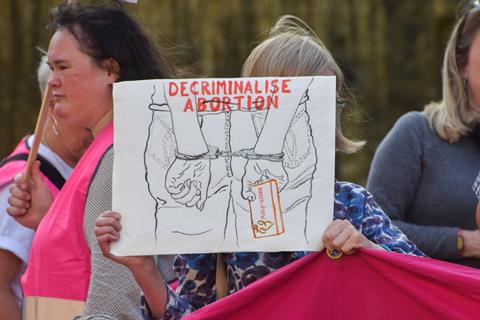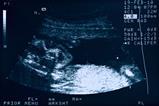In the most significant shift to abortion law in nearly six decades, MPs have voted to remove criminal penalties for women who end their pregnancies at any stage. Caroline Ansell from CARE is among the Christians voicing deep concern. She warns this change harms both women and unborn children

Yesterday MPs voted to decriminalise abortion in England and Wales by an astonishing margin of 379 votes to 137.
MPs endorsed the biggest change to British abortion laws in five decades after just 46 minutes of debate. It is now up to House of Lords to decide if this change should become law.
It is likely, though not inevitable, that this will happen. If the change does go through, it will be a terribly sad day for the United Kingdom, for women, and for babies.
The amendment put forward would mean that women who perform their own late term abortions after 24 weeks no longer commit an offence. At 24 weeks a baby is already so well developed it is practising its breathing. And yet, an abortion at this stage would never lead to a woman being criminalised.
A woman who fraudulently obtains abortion pills via telemedicine provisions and ends her pregnancy before disposing of the baby’s body, as in the harrowing case of Sarah Catt who did this to cover up an extramarital affair, would commit no crime. A self-administered abortion due entirely to a baby’s sex would also no longer constitute an offence. Remaining legal protections giving small recognition of a baby’s humanity would be disapplied.
The law is supposed to provide clear boundaries and to serve as a deterrent and a safeguard. But during yesterday’s debate, Rebecca Paul MP rightly noted that decriminalisation will embolden abusive men. “By decriminalising women”, she said, “we would, by implication, also stop the opportunity to prosecute abusive or coercive males. To be prosecuted for aiding and abetting abortion, there needs to have been a case to answer in the first place”.
In a letter to The Telegraph ahead of yesterday’s debate, more than 1,000 medics warned that decriminalisation will “lead to serious risks to women’s health” because of the dangers of self-administered late abortions. And they cautioned that MPs could expect a “significant increase in such complications” if it is ratified, as it would “remove any legal deterrent against women administering their own abortions late in pregnancy”.
Christians are not alone in opposing this. In a widely shared tweet about the proposal a few days before it was voted on, the atheist, feminist philosopher Kathleen Stock said: “I think a lot of women are uncomfortable with this extreme proposal but don’t want to say so for fear of drawing the ire of a small number of feminists who (in my view) are quite fanatical about abortion as an issue… Just for the record, I think this is very wrong”. Polling reflects this with only 1% of the public supporting full term abortion.
No one wants to see women investigated and put through the courts, but decriminalisation is not the answer. These desperate cases arose from the misuse of abortion ‘pills by post’. A permissive policy introduced during the pandemic, the ‘pills by post’ scheme allows women to obtain abortion pills via telemedicine – through an online only consultation with a medic. MPs rejected an amendment to reinstate in-person consultation with a medic before abortion pills can be obtained by a margin (379 to 117) even though polling clearly shows 2 in 3 women support this return.
This scheme is dangerous. An estimated 10,000 women who took pills required hospital treatment between April 2020 and September 2021 which can be pinned to this change. It is also designed for pregnancies up to ten weeks. There is no way for a medical professional to know how long the woman on the screen has been pregnant, or whether she is pregnant at all. There is also no way to guarantee that a woman is not being coerced into obtaining pills because she is in abusive relationship, or because she is the victim of commercial sexual exploitation.
This point was raised in Tuesday’s debate by Dr Caroline Johnson MP. She explained: “When a lady uses telemedicine to have an abortion, it is not possible for a doctor or clinician to know whether somebody else is in the room with them or sat the other side of the camera forcing them to say what they are saying. It is not possible for the doctor to know whether the lady is pregnant or not or whether the person asking for the medicine will be the person who takes it. That is very unsafe.”
At CARE, we were deeply saddened by the votes this week. We need to have a heart for preborn babies, who are precious in the sight of God, and for women who find themselves in crisis pregnancies. Being pro-life means loving both – through pregnancy and far beyond, supporting policies that help mums and babies to flourish.
Christians must continue to declare that both lives matter in every pregnancy. When we do, it should be with “tears in our eyes” as the bioethicist John Wyatt likes to say. We have done this for five decades at CARE and we will continue to do it, by God’s grace, in decades to come.




































1 Reader's comment